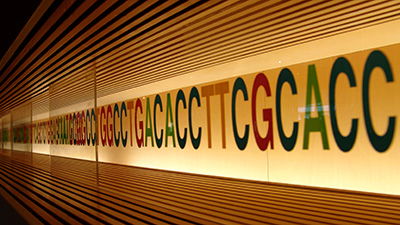Evolution: Fact or Fiction?
In Utah and elsewhere, it all depends on your presuppositions.
In the current controversies about teaching about the origin of life in public schools, there is a general misunderstanding of the differences between “origin science” and “operation science."
In Utah, like many other places in America today, a firestorm has erupted over what can be taught in the state’s public schools concerning evolution.1 The Utah legislature is currently considering a bill requiring public school teachers to inform students that the state does not endorse a particular theory of human origins.
A writer for the Salt Lake Tribune newspaper declared that scientists believe there are “no legitimate contenders” (meaning evolution is supreme) and that the debate concerning evolution is really about how it happened, not that it happened.2
The writer then discussed problems with the definitions of the word “theory” as understood (or misunderstood) by the general public vs. what scientists say: “Scientists reserve the word theory for a hypothesis, or idea, that has withstood rigorous examination to explain something that can be observed” (emphasis added). Later in the Tribune piece, a scientist is reported as saying that “Science demands testable explanations for observable occurrences” (emphasis added). The key word in both quotes is “observed/observable.”
There is a general misunderstanding of the differences between “origin science” and “operation science.” Origin science is based on events which happened in the past and are, therefore, not observable today. Operation science, though, is based on science currently being done in laboratories that is observable today. While it is true that operation science can help us understand what may have happened in the past, it is an extrapolation or best guess based on the evidence that we observe today.
Scientists are biased just like everyone else in that they bring their preconceived ideas about the past and how life originated into their research. For example, if a scientist’s presupposition is that God does not exist and that living organisms are the result of evolution over millions of years, then his interpretations of the outcome of operation science will seem to support his view of the past. When a scientist’s presupposition, however, is that God exists and that living organisms are the result of His creative powers within a six-day period, he can use this to properly interpret the results of operation science which support the Bible's claims. Because all scientists are working with the same data, the battle is not over the evidence but rather the interpretation of that evidence in light of the scientist's presuppositions. Origins science, because it is not testable, tends to be more influenced by a scientist's bias, and therefore tends to be more subjective rather than objective.
Human and chimp similarity?
The Tribune article then touched on the often-cited similarity of the human and chimp genomes as evidence from operation science that supports the presupposition of molecules-to-man evolution/millions of years. One University of Utah biologist who was quoted declared that human/chimp similarity is “absolutely, completely, totally convincing. It is proof [of evolution].” This is an astonishing statement, for nothing in science ever proves or disproves a theory. The evidence either supports or does not support a theory; proof is too strong of a word, and instead the word support is always preferred. This same scientist then went on to say that, “Anyone who has examined the evidence can see that the similarities point toward an ancient common ancestor that links all species.”
I am a scientist, a molecular geneticist, and I have examined the same evidence, and I believe the similarities point towards a common Designer that created animal kinds and man.
And how similar are the human and chimp genomes really? The often-quoted numbers of 96–99% similarity are only for regions of the DNA (DNA is the molecule of heredity) that code for proteins. If a particular protein serves a function in one organism and the function was needed in another organism, wouldn’t we expect to find the same protein?
In addition, the remainder of the genome consisting of “junk” DNA and highly repetitive sequences has not been examined for similarity. Why? Because in the evolutionists’ mind, they are not important.
“Junk” DNA, for example, is thought of as an evolutionary leftover. However, there is increasing evidence to support a role for so-called “junk” DNA. It may serve a role in regulating how much protein is eventually expressed from the DNA. “Junk” DNA may also serve as a spacer between genes (protein coding sequences) much like the function of the spaces between the words in this article—without them the letters wouldn’t make any sense.
Differences between humans and chimps
Here are some other interesting differences between the human and chimp genomes which are often not reported:
- The chimp genome is 12% larger than the human genome.
- Only 2.4 billion bases have been aligned between the two genomes, leaving a maximum similarity of 68–77%.
- In many areas of the genome, it appears major rearrangements of DNA sequences have occurred, accounting for another 10–20% dissimilarity.
- Chimps have 46 chromosomes and humans have 44 chromosomes (excluding sex chromosomes for both species).
- To save money and time, the chimp genome was assembled using the human genome as a template (because of the presupposition that humans evolved from the same line as chimps); it is currently unknown if the pieces of the chimp genome “puzzle” were put together properly.
To address these concerns and others, comparisons of the human and chimp genomes will be a part of “GENE” project sponsored by the Institute for Creation Research (ICR).The bioinformatics team (of which I am a part) will be analyzing different aspects of the human genome with special emphasis given to the comparison of human and chimp genomes. As stated by project leader Dan Criswell of ICR, “GENE’s” goal is “to provide scientific evidence supporting the Biblical position that man was created distinctly different from the animals, and that each ‘kind’ of animal was created distinctly different from other ‘kinds’.” Again, it all depends on one’s presuppositions.
The interpretation of scientific evidence from operation science informs our beliefs about origin science. What must be understood is that scientists’ presuppositions determine their interpretation of the evidence—God or no God; six 24-hour creation days or evolution/millions of years; accepting the authority of the Bible or not adhering to the Bible.
A biologist in the Tribune article is quoted as saying, “It’s very difficult to be a biologist and not recognize the importance of evolution.” I would like to rephrase that: “It’s very difficult to be a biologist and not recognize the importance of God and His creation.”
Footnotes
- The State Senate in Utah has approved the bill, and it is now in the State House for a vote.
- www.sltrib.com/search/ci_3416115.
Recommended Resources

Answers in Genesis is an apologetics ministry, dedicated to helping Christians defend their faith and proclaim the good news of Jesus Christ.
- Customer Service 800.778.3390
- Available Monday–Friday | 9 AM–5 PM ET
- © 2025 Answers in Genesis







